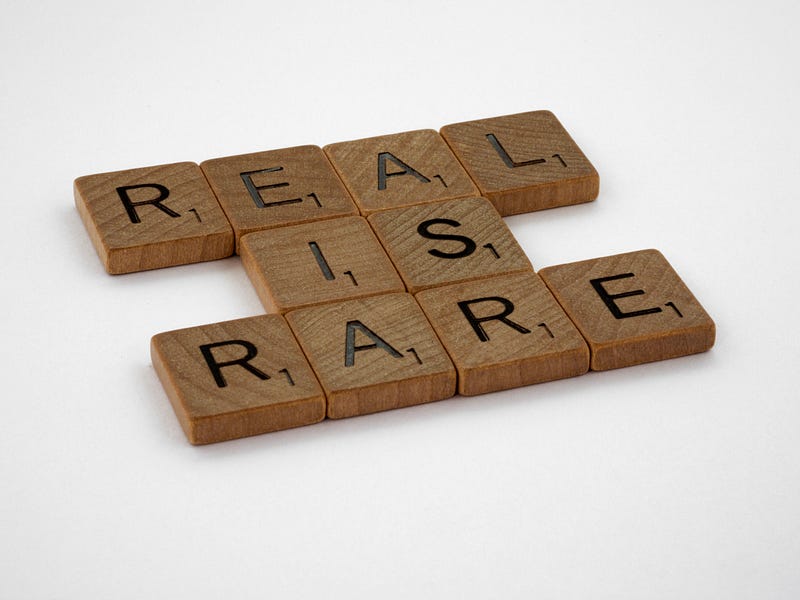Unveiling Your True Self: A Journey to Authentic Living
Written on
Chapter 1: Understanding Authenticity
In today's world, the concept of “living authentically” resonates deeply with many individuals. The quest for self-actualization, a term coined by psychologist Abraham Maslow, invites us to explore what it means to be a complete and whole person.
To embark on this journey, we must examine the interplay between our thoughts, emotions, and behaviors, as these elements continuously influence one another. Our thoughts shape our feelings and actions; conversely, our feelings can alter our thoughts and behaviors, while our actions can impact our emotional state.
According to Simply Psychology, self-actualization is defined as “the complete realization of one’s potential as manifest in peak experiences which involve the full development of one’s abilities and appreciation for life.”
The field of Positive Psychology offers valuable insights into our character, particularly focusing on our character strengths.
Section 1.1: Defining Character Strengths
But what exactly are character strengths? They are the distinctive qualities that define an individual’s mental and moral attributes. Each of us possesses a unique combination of traits that contribute to our individuality. While we all excel in certain strengths, it is natural to have areas where we may not be as proficient. The key lies in acknowledging this and focusing on enhancing our strengths rather than solely addressing our weaknesses.
By leveraging our character strengths, we can foster happiness and overall well-being in our lives. Reflecting on what matters most to us and identifying our areas of competence is an effective way to uncover these strengths.

When we operate out of alignment with our strengths, we may experience a sense of incongruence. This discrepancy exists between how we perceive ourselves and who we aspire to be. Living in a state of incongruence can lead to feelings of dissatisfaction or what Buddhists refer to as dukkha—often translated as “suffering,” but more accurately described as a sense of unsatisfactoriness.
Section 1.2: The Benefits of Knowing Your Strengths
Recognizing and embracing our character strengths allows us to feel more productive and aligned with our ideal selves, thereby reducing feelings of disconnect. A common question arises: if I become aware of my strengths, will utilizing them increase my happiness and sense of well-being?
The straightforward answer is yes, though integrating this awareness into daily life can be challenging.
You can identify your character strengths by taking the VIA Character Strengths Survey at viacharacter.org. It’s beneficial to retake this survey every six months to observe any changes. The top five strengths identified represent your key traits, while the bottom five highlight areas for potential growth.
As highlighted in previous discussions, there are six primary categories of character strengths:
- Wisdom: Creativity, curiosity, judgment (critical thinking), love of learning, perspective
- Courage: Bravery, honesty, perseverance, zest
- Humanity: Kindness, love, social intelligence
- Justice: Fairness, leadership, teamwork
- Temperance: Forgiveness, humility, prudence, self-regulation
- Transcendence: Appreciation of beauty and excellence, gratitude, hope, humor, spirituality
Each of these strengths serves as a means of engaging with the world through our thoughts, emotions, and actions.
Chapter 2: Applying Character Strengths in Daily Life
In the video "How to Discover Your Authentic Self -- at Any Age | Bevy Smith | TED," the discussion revolves around uncovering the layers of our authentic selves, regardless of age. It emphasizes the importance of understanding and embracing our true identity.
The second video, "How To Discover Your Authentic Self | The Mindset Mentor Podcast," delves into practical strategies for recognizing and harnessing our authentic selves, reinforcing the significance of character strengths in our personal development.
By examining our character strengths through the lens of thoughts, feelings, and actions, we can identify actionable steps to incorporate them into our lives. Consider selecting a few of your top strengths and exploring them using the think, feel, be framework. This approach encourages creativity in applying these strengths daily.
Keeping a journal to document your experiences when implementing a specific strength can be particularly insightful.
I invite you to reflect on your character strengths: how will you engage with them to enhance your happiness and well-being? Sharing your thoughts in the comments would be wonderful!
Originally published on Elephant Journal and adapted for Medium.
For those who enjoy my writing, consider joining Medium via my membership link to access unlimited articles from myself and others. Your support helps sustain me and countless other writers.
Thank you for your appreciation! Also, check out my publications, Inkslinger Magazine and Mindful Mental Health, focused on mindfulness and mental health topics.
©Caitlin McColl 2022, all rights reserved.